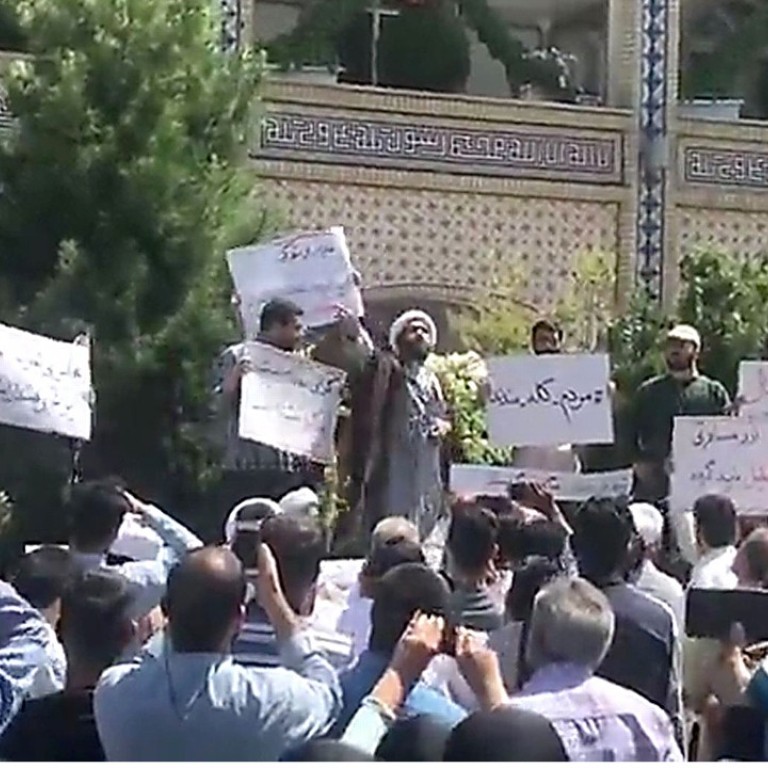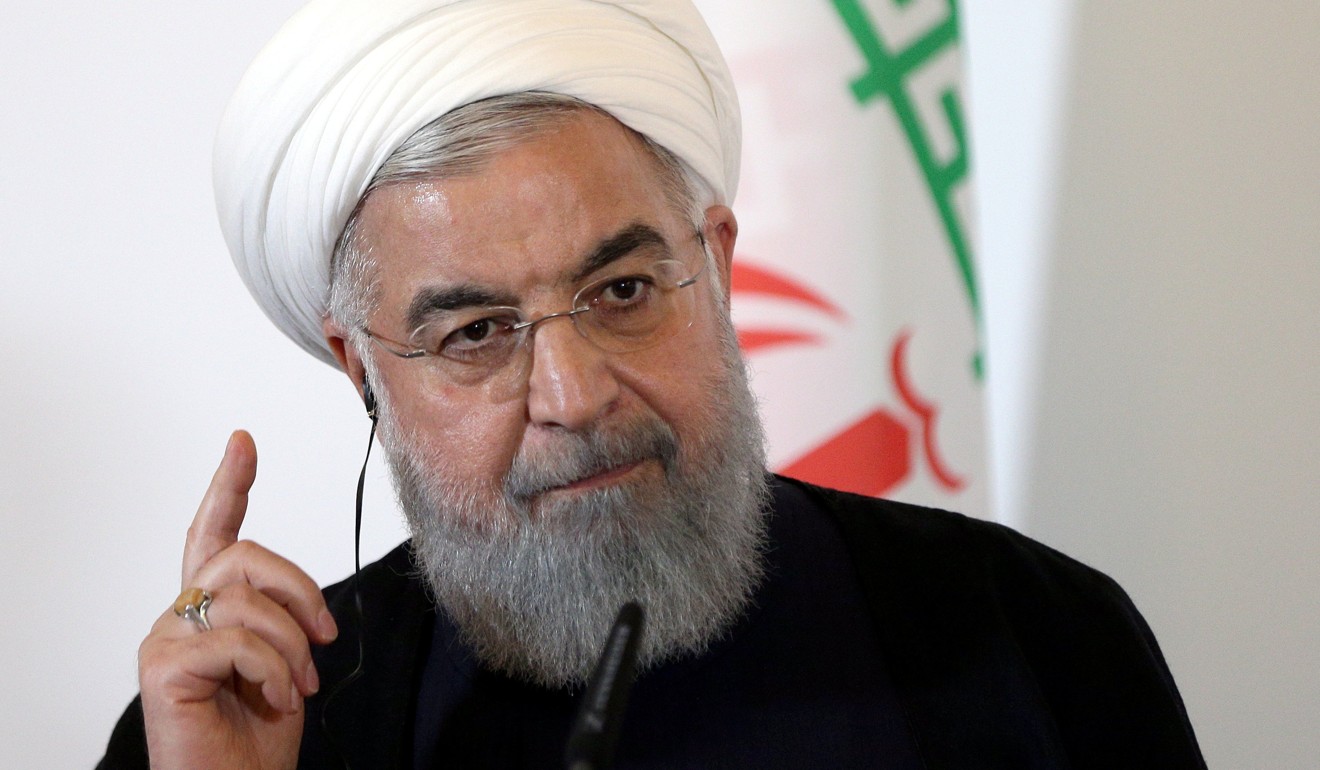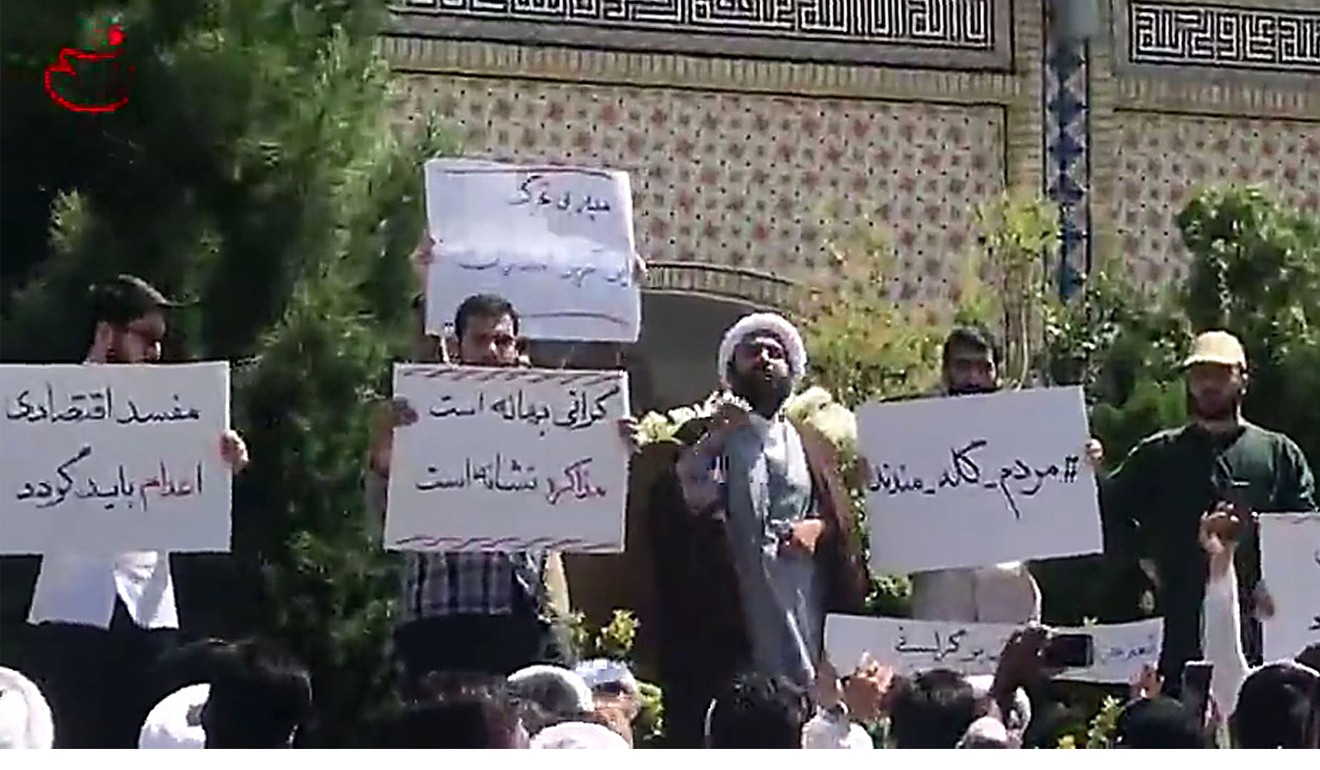
Protesters in Iran attack seminary, break windows in run up to return of US sanctions
Lacklustre economy also angering locals, with rare displays of discontent appearing across the country
Iranian protesters have attacked a religious school in Karaj province near Tehran, the conservative Fars news agency reported on Saturday, as sporadic protests simmered before the reimposition of US sanctions.
Iranian authorities have barely mentioned days of protests in the major cities of Isfahan, Shiraz, Mashhad and Tehran, driven by concerns over the economy as well as wider anger at the political system.
During past unrest, conservative outlets have focused on attacks against sensitive symbols such as religious buildings as a way of tarnishing the protests.
“At 9pm (on Friday) they attacked the school and tried to break the doors down and burn things,” Fars quoted the head of the school in the town of Ishtehad, Hojatoleslam Hindiani, as saying.

It only gave his clerical rank – Hojatoleslam – not his name.
“They were about 500 people and they chanted against the system but they were dispersed by the riot police and some have been arrested,” Hindiani said. “These people came with rocks and broke the sign and all the windows of the prayer house and they were chanting against the system.”
Videos on social media in recent days have shown people marching in the streets of several cities, chanting “Death to the dictator” and other radical slogans.
But these have been impossible to verify and the authorities have charged that they are promoted by foreign-based opposition groups funded by the US, Israel and Saudi Arabia.
Foreign media are barred from observing or filming “unauthorised” protests.
But the government of President Hassan Rowhani also faces opposition from conservatives and religious leaders, who have long opposed his outreach to the West and are keen to leverage anger over corruption to unseat him.

The conservative Qom News published a video of a protest in the holy city of Mashhad after Friday prayers, in which a cleric tells a sizeable crowd: “Most of your representatives don’t care about people’s problems. Most have two passports and their families are abroad. The judiciary should find these people and arrest them,” the cleric says, to chants of “Allahu akbar” from the crowd.
So far, social media reports suggest the current protests are far from the scale of the unrest seen in December and January, when at least 25 people were killed in demonstrations that spread to dozens of towns and cities.
But all Iranians are concerned about the struggling economy, especially since the United States walked out of the nuclear deal in May and announced it would reimpose full sanctions in two stages.
The first phase hits on Tuesday with blocks on financial transactions and imports of raw materials, as well as sanctions on Iran’s automotive sector and commercial aircraft purchases.

Iran Air announced it would take delivery of five ATR aircraft from the French-Italian firm on Sunday, sneaking under the wire before the sanctions return.
Iran says the sanctions are endangering lives by blocking the sale of new planes and spare parts for its ageing fleets.
Iran’s Aseman Airlines was ordered to ground its fleet of ATR planes in February after one of them crashed in the Zagros Mountains, killing all 66 people on-board.
Remaining sanctions – including on Iran’s oil and gas sector and central bank – will resume on November 5.
Although smaller foreign firms have vowed to work around the US measures, multinationals such as France’s Total and Peugeot, and Germany’s Siemens have already said they will have to pull out.
Increased US hostility has also driven a run on Iran’s currency, which has lost around two-thirds of its value in six months.

.png?itok=arIb17P0)